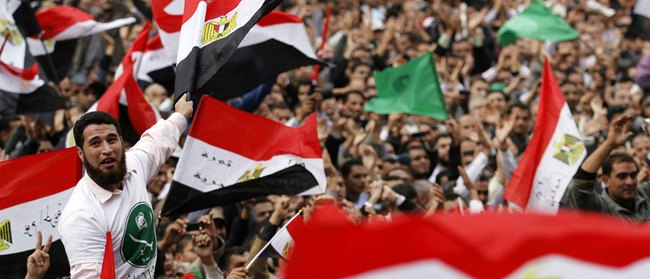A follow up on Slacktivism: the Arab Spring
By way of following up on my Huffington Post article on the dangers of Slacktivism I thought it was worth examining whether unrestricted internet and real-world activism go hand in hand.
The Arab Spring is a great example. According to a study by the University of Washington:
During the week before Egyptian president Hosni Mubarak’s resignation… the total rate of tweets from Egypt — and around the world — about political change in that country ballooned from 2,300 a day to 230,000 a day. Videos featuring protest and political commentary went viral – the top 23 videos received nearly 5.5 million views. The amount of content produced online by opposition groups, in Facebook and political blogs, increased dramatically.
The study goes on to argue that 20% of all blogs in Tunisia were analyzing Ben Alis leadership on the day that he resigned as compared with 5% just one month before.
Meanwhile almost 90% of Egyptians and Tunisians used Facebook to organise protests and spread awareness of their cause, one particularly famous example being the ‘We are all Khaled Saeed’ page which generated 400,000 members between June 2010 and January 2011. The page was dedicated to Saeed, a student who was beaten to death by Egyptian police after he circulated a video of a group of policemen sharing out a haul from a drug bust. A further (almost) 30% of Egyptians and Tunisians claimed that it was a hindrance to their cause when Facebook was blocked in the region.
Also compelling is the growth in Facebook users in the region during the Arab Spring. Facebook subscription grew by 30% in the Arab region between January and April 2011. The vast majority of people in the region surveyed at the time said they received their news on the Arab Spring uprisings via social sites.
Social media was also integral in spreading the news of the Arab Spring across borders - not only did it help to instigate a sort of ‘domino effect’ (to use a slightly dangerous term), it also helped to keep Western media informed. In turn, with all eyes on the region on a global scale, some of the institutionalised violent government reprisal we might have expected was kept in check. Sadly this was not the case in Syria.
So clearly social media sites can be used for effecting meaningful change, and restriction to internet access can be prohibitive for social activism. The question is, with a free internet, would we see more successful uprisings such as those we’ve witnessed in Arab countries across dictatorships such as China and North Korea?
